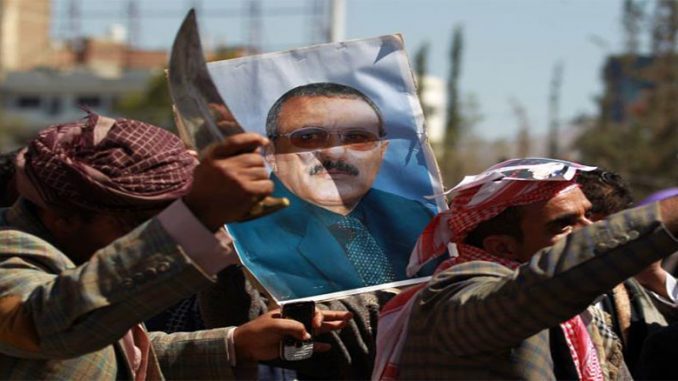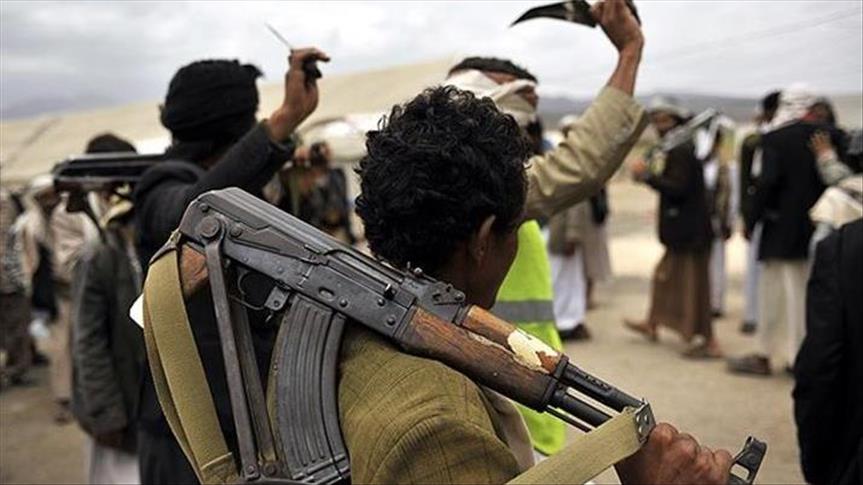
The General People’s Congress lost its mouthpiece publication on Tuesday, after Houthi rebels banned the al-Mithaq newspaper, in what seems to be deepening tensions between the former allies.
Yemen’s Houthi rebels banned a newspaper owned by former President Ali Abdullah Saleh’s political party in Sanaa, local reports said on Tuesday.
The rebels shut down the al-Mithaq newspaper, a publication run by the General People’s Congress (GPC) in the capital, said editor-in-chief Mohammed Anam.
Anam called on Yemeni and Arab journalists, as well as the Federation of Arab Journalists and the International Federation of Journalists to stand in solidarity with the publication, whose journalists are allegedly subjected to intimidation and prosecution.
The publication was banned after reaching “the courts,” he said, which “aims at thwarting freedom of speech under false pretences and silencing the voice of the General People’s Congress.”
The ousted president has been the rebel groups’ main ally since they captured the capital Sanaa in September 2014, and has been quoted as saying he was “fighting in a single trench alongside the Houthis.”
However, tensions between the two have increased in recent weeks as the conflict in Yemen surpassed more than two years and left more than 10,000 dead.
Last week, Saleh appeared to turn against his Houthi allies, giving his media agencies the green light to “expose” the rebels and saying he was willing to negotiate with rival Saudi Arabia.
Saleh, who survived an assassination attempt in 2011, resigned as leader in February 2012 following massive public pressure, but he remains a highly influential figure in Yemen.
“We have no choice but dialogue,” Saleh said at a meeting of his General People’s Congress party in the Yemeni capital Sanaa last week.
“We are ready to go to Riyadh, Khamis Mushit, Muscat or elsewhere to start dialogue and to reach an understanding,” Saleh said, referring to cities in Saudi Arabia and neighbouring Oman.
The Houthis, who have been accused of human rights abuses, currently control Yemen’s capital, the northern region bordering Saudi Arabia, and a string of key ports along the Red Sea coast.
“Saleh, during a meeting with a number of members of the General People’s Congress, threatened to sell the Houthis to the [Arab] coalition should they not bow to his demands,” Saudi Arabia’s official news agency said on Wednesday.
Since the Houthi takeover of the capital, the rebel group, backed by Saleh’s forces, have shut down all satellite channels, newspapers and websites deemed hostile to them, prompting some to begin broadcasting abroad.
Meanwhile, dozens of journalists have been abducted, killed or imprisoned while covering the deadly conflict.



